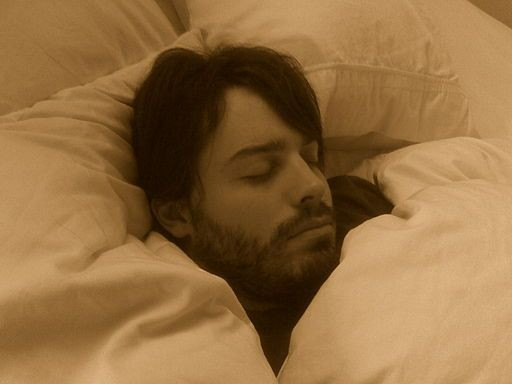Prostate Cancer Risk Doubles With Insomnia And Sleep Problems

Men who report sleep problems, like insomnia and frequent nighttime waking, have as much as double the prostate cancer risk of men without such difficulties, a new study suggests.
Researchers led by Dr. Lara G. Sigurdardóttir of the University of Iceland in Reykjavik examined how sleep difficulties might be implicated in prostate cancer risk, based on previous studies linking the disease with night shift work and sleep deprivation.
Over the course of five years, Dr. Sigurdardóttir's team observed 2,102 Icelandic men ages 67 to 96, none of whom had prostate cancer when they began participating in the study.
The volunteers answered four questions after enrolling: what drugs (if any) they took to fall asleep, whether insomnia kept them awake, whether they woke up throughout the night and had trouble falling asleep again, and whether they woke up early in the morning and had trouble falling back asleep.
Almost 9 percent of the men reported "severe" sleep problems, and another 6 percent reported "very severe" sleep disturbances according to standard measures.
The researchers also collected data about the participants' prostate cancer diagnoses. During the five-year study period, 6.4 percent of the men developed prostate cancer.
Data analysis revealed that the worse the sleeping problems, the higher the prostate cancer risk. Men who reported more severe difficulties falling and staying asleep had proportionately rising risk, from 1.6 to 2.1 times the risk of men who reported no sleep disturbances.
Highlighting the connection even further, men with "very severe" sleeping problems had three times the risk of advanced prostate cancer.
The researchers confirmed the findings by reanalyzing the data after excluding men who reported sleep disturbances from frequently waking up to urinate at night, which is a common symptom of prostate cancer. That ruled out the prospect of such sleeping problems resulting from undiagnosed prostate cancer.
"Prostate cancer is one of the leading public health concerns for men and sleep problems are quite common," said Dr. Sigurdardóttir in a news release.
It's unclear what causes the link between sleeping problems and prostate cancer risk. More research is necessary to examine the correlation.
"If our results are confirmed with further studies, sleep may become a potential target for intervention to reduce the risk for prostate cancer."
The study reiterates the importance of healthy sleeping patterns for long-term health. Previous studies have found a similar link between sleeping problems in women and higher risk for breast cancer, as well as one between sleep deprivation and declining male fertility.
The study findings were published in the journal Cancer Epidemiology, Biomarkers & Prevention.



























